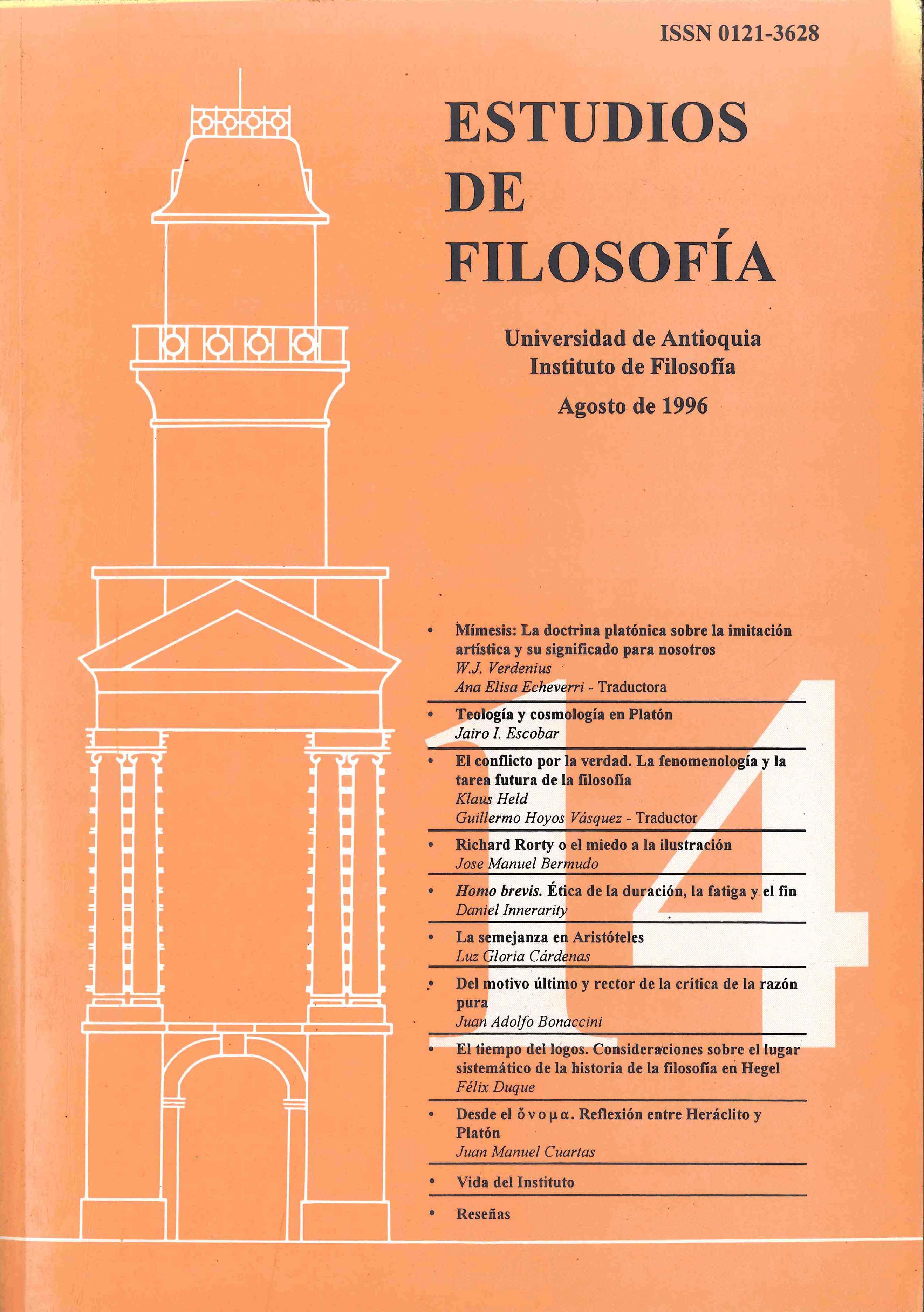The time of logos. Considerations on the systematic place of the history of philosophy in Hegel
DOI:
https://doi.org/10.17533/udea.ef.338437Keywords:
Time, Hegel, Dasein, logosAbstract
lt is maintained here that the History of Philosophy propases a tension benveen time and logos, and that understanding that tension there properly leads to clarify its role in philosophy. This thesis is developed by studying the place such a discipline us given in the Hegelian system. lt is thought here that the interdependence of time and logos must be evidenced in a double way. On the one hand, it is necessary to consider the existence (Dasein) of concept in the time, and on the other hand, how difficult it is for philosophy to clarify the historie time in the concept. Accordingly, although Hegel is aware of the importance of The History of Philosophy for achieving his system (as far as "knowing about the historie coming to be of philosophy is philosophy too), he emphasises logos. Against the Hegelian propasal, it is stated that philosophical texts must not be regarded as a "mere product of their time" and thence it is unavoidable lo accept a fundamental opacity that produces the equivocity of such texts.
Downloads
Downloads
Published
How to Cite
License
Copyright (c) 2019 Félix Duque

This work is licensed under a Creative Commons Attribution-NonCommercial-ShareAlike 4.0 International License.
Authors who publish with this journal agree to the following terms:
1. The Author retains copyright in the Work, where the term "Work" shall include all digital objects that may result in subsequent electronic publication or distribution.
2. Upon acceptance of the Work, the author shall grant to the Publisher the right of first publication of the Work.
3. The Author shall grant to the Publisher a nonexclusive perpetual right and license to publish, archive, and make accessible the Work in whole or in part in all forms of media now or hereafter known under a Creative Commons Attribution-NoCommercia-ShareAlike (CC BY-NC-SA 4.0), or its equivalent, which, for the avoidance of doubt, allows others to copy, distribute, and transmit the Work under the following conditions: (a) Attribution: Other users must attribute the Work in the manner specified by the author as indicated on the journal Web site;(b) Noncommercial: Other users (including Publisher) may not use this Work for commercial purposes;
4. The Author is able to enter into separate, additional contractual arrangements for the nonexclusive distribution of the journal's published version of the Work (e.g., post it to an institutional repository or publish it in a book), as long as there is provided in the document an acknowledgement of its initial publication in this journal;
5. Authors are permitted, and Estudios de Filosofía promotes, to post online the preprint manuscript of the Work in institutional repositories or on their Websites prior to and during the submission process, as it can lead to productive exchanges, as well as earlier and greater citation of published work (see The Effect of Open Access). Any such posting made before acceptance and publication of the Work is expected be updated upon publication to include a reference to the Estudios de Filosofía's assigned URL to the Article and its final published version in Estudios de Filosofía.















